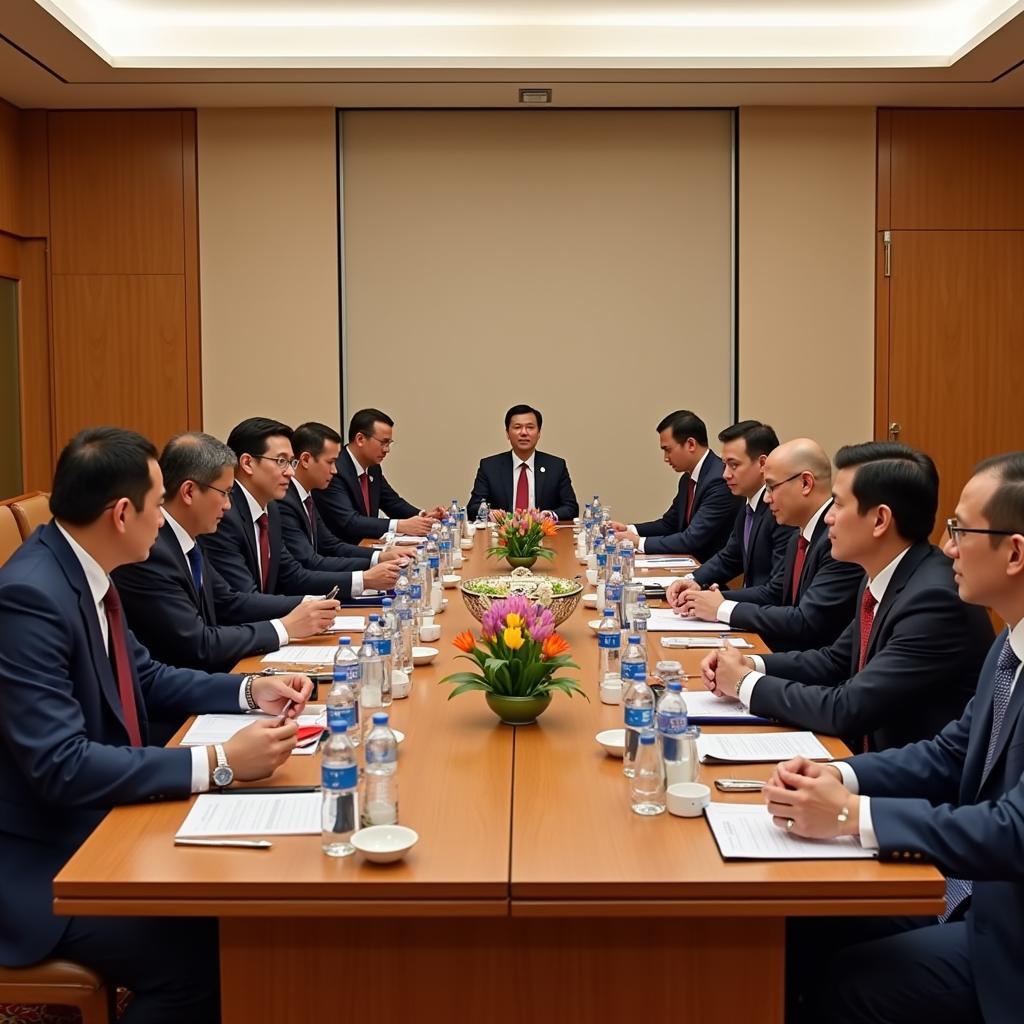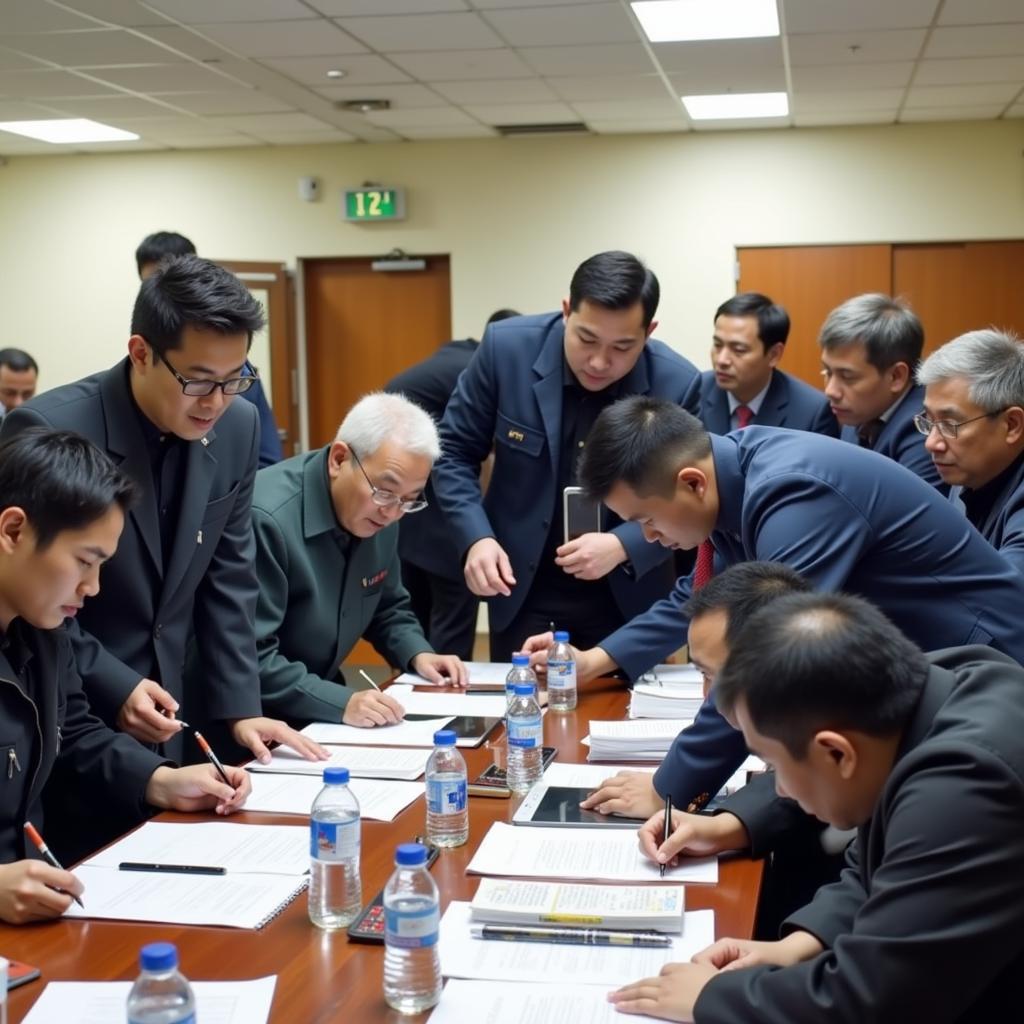The ASEAN Regional Forum (ARF) is a crucial platform for dialogue and cooperation on political and security issues in the Asia-Pacific region. Established in 1994, the ARF comprises ASEAN members and their dialogue partners, working together to foster peace and stability in the region. This article delves into the composition and significance of the Asean Arf Members.
Understanding the ASEAN Regional Forum (ARF)
The ARF operates on the principles of consensus-based decision-making and non-interference in internal affairs. It provides a forum for members to engage in open and constructive dialogue, build confidence, and develop a shared understanding of regional security challenges. The ARF’s agenda encompasses a wide range of issues, including:
- Maritime Security: Addressing concerns related to territorial disputes, piracy, and illegal fishing.
- Terrorism and Transnational Crime: Cooperating to counter terrorism, violent extremism, and transnational organized crime.
- Disaster Management: Enhancing regional preparedness and response mechanisms for natural disasters.
- Non-Proliferation and Disarmament: Promoting dialogue and cooperation on arms control, non-proliferation, and disarmament.
 ASEAN ARF Meeting
ASEAN ARF Meeting
Who are the ASEAN ARF Members?
The ARF consists of 27 members:
1. Ten ASEAN Member States:
- Brunei Darussalam
- Cambodia
- Indonesia
- Lao PDR
- Malaysia
- Myanmar
- Philippines
- Singapore
- Thailand
- Vietnam
2. Dialogue Partners:
- Australia
- Canada
- China
- European Union
- India
- Japan
- Republic of Korea
- New Zealand
- Pakistan
- Papua New Guinea
- Russia
- Timor-Leste
- United States
3. One Observer:
- Democratic People’s Republic of Korea (DPRK)
The Role and Significance of ASEAN ARF Members
Each member of the ARF plays a crucial role in shaping the regional security architecture and promoting dialogue and cooperation.
- ASEAN Member States: As the driving force behind the ARF, ASEAN members set the agenda and provide leadership in addressing regional security challenges.
- Dialogue Partners: Dialogue partners bring their unique perspectives and resources to the table, contributing to the ARF’s efforts in promoting peace and stability.
- Observer: The observer status provides an opportunity for engagement and dialogue, fostering a conducive environment for the peaceful resolution of regional issues.
 ASEAN ARF Cooperation
ASEAN ARF Cooperation
Challenges and Future Directions
While the ARF has made significant strides in fostering dialogue and cooperation, it faces several challenges:
- Competing Territorial Claims: Overlapping territorial claims in the South China Sea pose a significant challenge to regional stability.
- Lack of Concrete Action: The ARF’s consensus-based approach, while promoting inclusivity, can sometimes hinder the implementation of concrete actions.
- Evolving Security Threats: The rise of non-traditional security threats, such as cyberattacks and pandemics, requires the ARF to adapt its agenda and mechanisms.
Despite these challenges, the ARF remains an indispensable platform for addressing regional security concerns. Strengthening the ARF’s effectiveness will require:
- Enhancing Confidence-Building Measures: Promoting greater transparency and communication among members to reduce mistrust and misperceptions.
- Developing Practical Cooperation: Translating dialogue into concrete actions through joint exercises, capacity-building programs, and information sharing.
- Addressing Emerging Security Challenges: Adapting the ARF’s agenda to encompass evolving security threats, such as cyber security and pandemics.
Conclusion
The ASEAN Regional Forum (ARF) serves as a vital platform for dialogue and cooperation on political and security issues in the Asia-Pacific. Comprising ASEAN members and their dialogue partners, the ARF plays a crucial role in fostering peace and stability in the region. While challenges remain, continued commitment and collaboration among ASEAN ARF members are essential for enhancing regional security and addressing emerging threats.
Need assistance or have questions? Contact us at Phone Number: 0369020373, Email: aseanmediadirectory@gmail.com, or visit us at Thôn Ngọc Liễn, Hiệp Hòa, Bắc Giang, Vietnam. Our dedicated customer support team is available 24/7 to assist you.